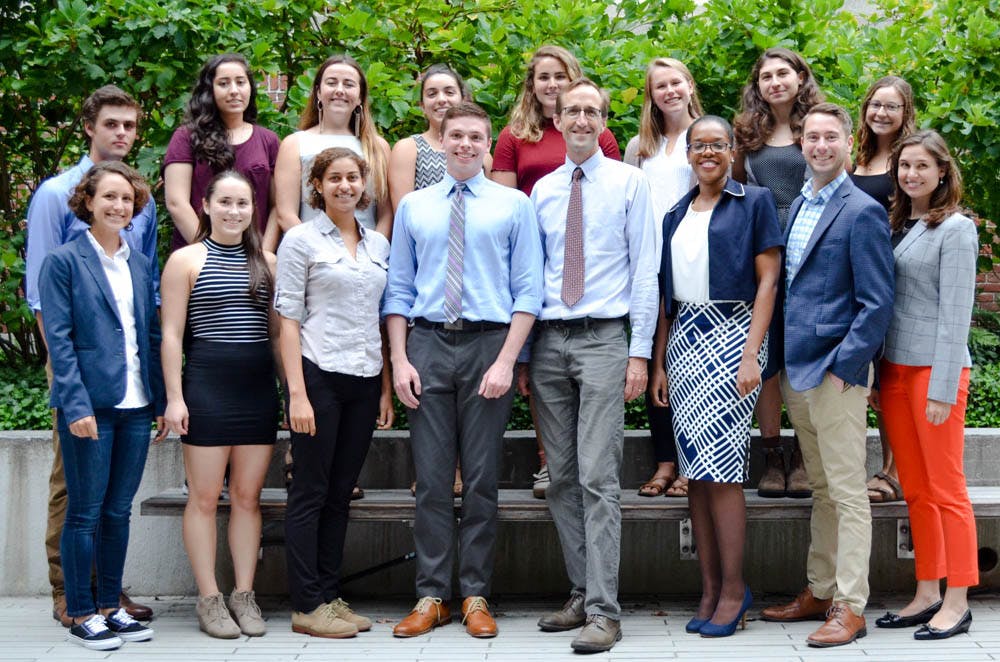Nations from across the world congregated in Bonn, Germany to discuss climate agreements and how they could battle climate change for the United Nations Climate Change Conference 23rd Conference of the Parties. Among the delegates, organizations and other attendees were members from the Climate and Development Lab at Brown.
The conference stretched from Nov. 6 to Nov. 17, with six of the 12 undergraduate students in the CDL going the first week and the other six going the second, said Julianna Bradley ’17.5, one of the students in the CDL. Preparation for the conference took place largely in the class ENVS 1575: “Engaged Climate Policy at the UN Climate Change Talks,” which was taught by J. Timmons Roberts, professor of environmental studies and co-founder and co-director of the CDL, said Emma Bouton ’20, another student in the CDL. Students had a set of core readings, which included topics such as the history of the climate talks, climate vulnerability and financing, gender and loss and damage, said Stacy-Ann Robinson, postdoctoral research associate and member of the CDL. Students also worked on individual and group projects, she said.
The students spent their time at COP23 working on “embedded” projects with organizations assigned to them before COP23. For Bradley, this meant working with Oxfam America, an organization that aims to reduce poverty. Oxfam sent delegates from their climate subsection to COP23, and Bradley attended negotiations for them, taking notes so she could report back. For Bouton, this meant working with the Global Island Partnership, for which she would attend events and work with social media. Other students worked with groups such as the United Nations Development Programme, Climate Home, the chair of the Least Developed Countries and the International Centre for Climate Change and Development.
The students also worked on independent projects while at COP23. Each student focused on a specific issue, deciding which negotiations and events to attend and which people to contact. Bradley’s project involved working with a group called Climate Home and looking at cities’ participation in meeting U.S. climate agreements.
Bradley said approaching and interacting with people involved in climate action was one of the best parts of COP23. Though there was a hierarchy with pink-badged “delegates” holding higher positions than yellow-badged “observers,” it was not rigid. “Anyone would talk to anyone,” she said. Bradley recalled standing in line at a coffee shop and recognizing the man behind her as the mayor of Carmel, Indiana, the only Republican politician in the U.S. delegation badge at the conference. She introduced herself, and they conversed for 45 minutes about climate change.
Bouton said that the conference was overwhelming, but she was disheartened by the slow pace of progress. The United Nations structures negotiations in a flawed way that allows them to continually push back decision-making, she said.
Guy Edwards, co-founder and co-director of the CDL, agreed that decision-making regarding climate change was occurring too slowly; however, he said that the shift to a low-carbon economy is now undeniable. “Far more needs to happen, but this process is an important step forward,” he said.





